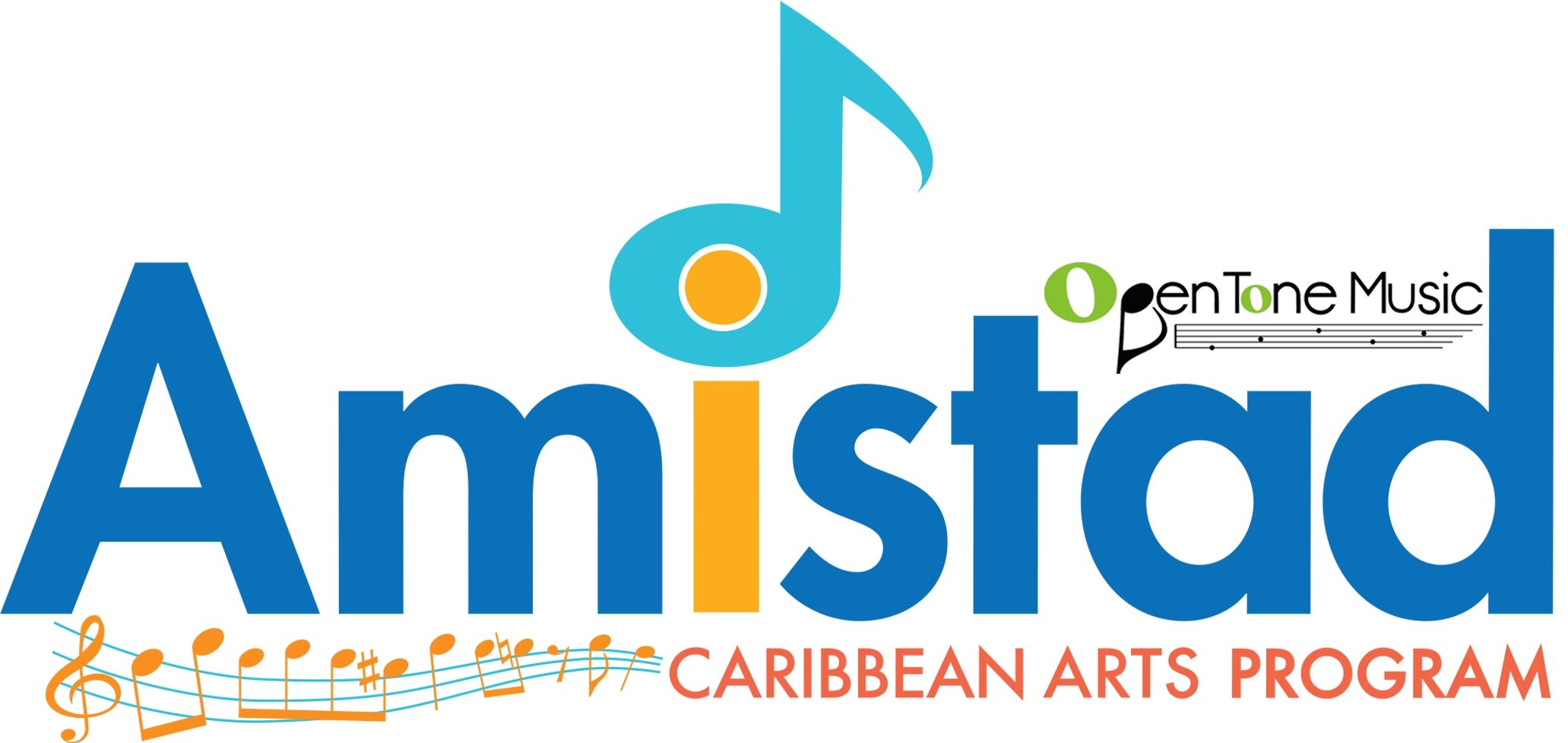AMISTAD CARIBBEAN ARTS CAMP
2020-2023 CURRICULUM
Core Curriculum
African Origins & Elements of African Music
A descriptive overview of African music introducing students to the key qualities that characterize most types of African music—elements that had a major impact on music in the Americas and can still be heard in much Caribbean music.
The Slave Trade and Its Influence on the African Diaspora
A brief examination of the transatlantic slave trade and its role in the dissemination of varied African musical influences across the Western Hemisphere.
Caribbean Music and Religion
A discussion of the importance of religious traditions,
both African and European, in Caribbean life, through examining the close relationship that developed between music and spirituality across the region. It will give special consideration to the survival and continuing strength of African religious and musical influences in the Caribbean up to the present despite the sustained attempts of European colonial governments to suppress them.
Carnivals and Festivals of the Caribbean
An overview of the carnival traditions, for which the Caribbean is famous, in Cuba, Trinidad, Haiti, the French Antilles, and the Eastern Caribbean islands, as well as similar street festivals in Jamaica, the Bahamas, Belize, and elsewhere. It will show how these Caribbean festive traditions have served as major sites of cultural and musical production and development not only within the region, but in North American and European cities with large Caribbean populations, such as New York, Toronto, Miami, and London.
Musical Bridges between the Caribbean and the Larger World
A discussion of the Caribbean’s long history of intercultural exchange through examination of the ongoing interconnections and musical dialogues between this region and other parts of the world that have continued to enrich music globally.
The Amistad Caribbean Arts Camp curriculum provides students with a comprehensive understanding and strong appreciation of the rich cultural heritage of the Caribbean region and its remarkable impact on music and arts in the United States and other parts of the world.
The annual core curriculum centers on important general themes in Caribbean musical life and their African origins. Each year’s summer camp will be supplemented with an expanded rotating curriculum of lessons focusing on particular geographical subregions and the musical genres and traditions most closely identified with them, giving students the broadest possible exposure to the Caribbean’s phenomenal musical and cultural diversity.
The collection of videos, photographs and essays that collectively comprise the Amistad Caribbean Arts Camp curriculum were created by Cultural Resources LLC, developers of Culture, the forthcoming software survey of world cultures.
Rotating Curriculum Topics
· Musical Genres and Traditions of Puerto Rico
· Cuban Popular Music (Day 1)
· Cuban Popular Music (Day 2)
· African Drumming Traditions of the Caribbean
· Musical Genres and Traditions of Trinidad and Tobago and the Eastern Caribbean (calypso, soca, and steelband)
· Musical Genres and Traditions of the Dominican Republic (merengue, bachata, and palos)
· Musical Genres and Traditions of Haiti and the French Antilles (konpa, biguine, and zouk)
· Indigenous Music of the Caribbean


